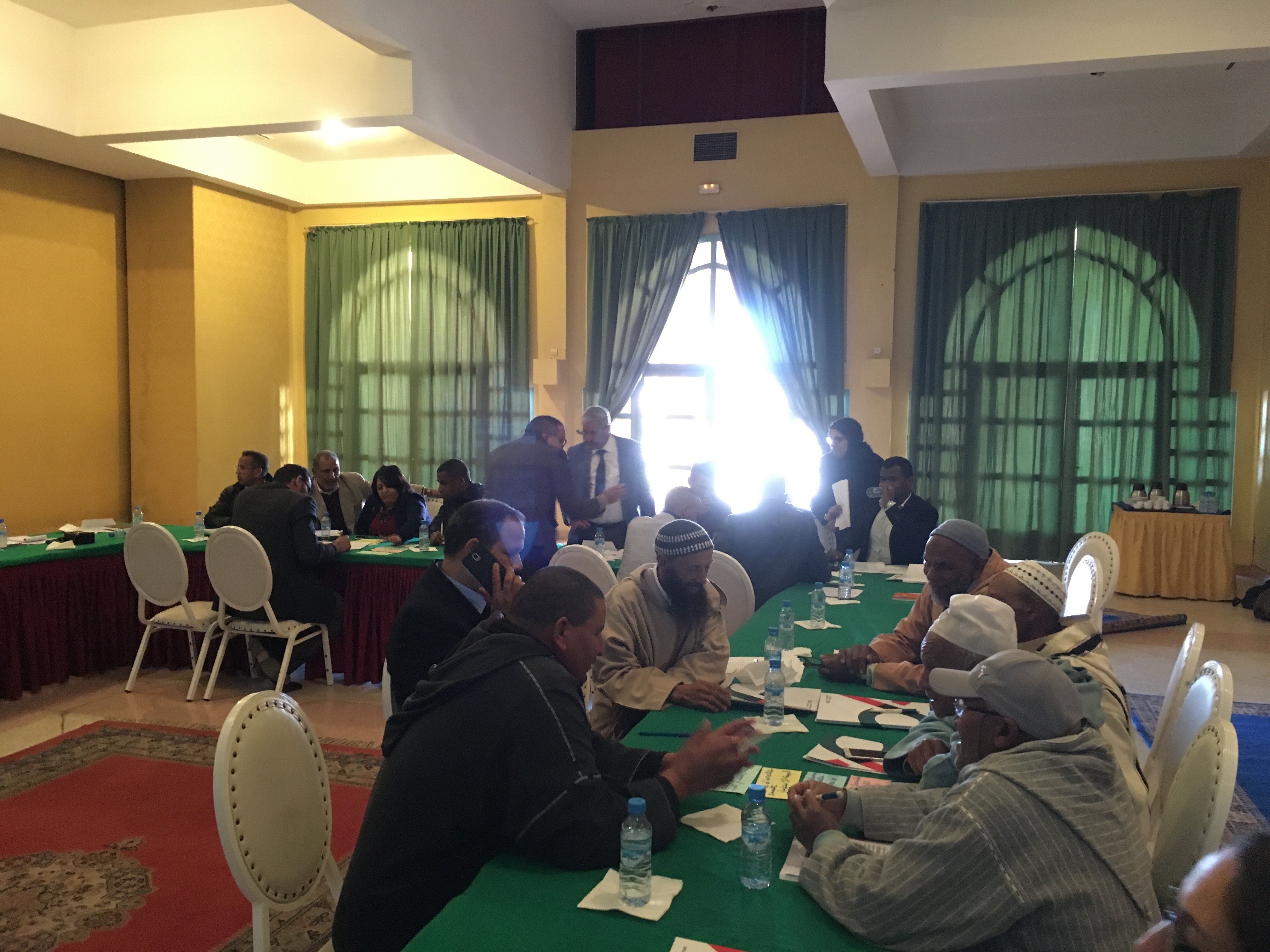On 4 December 2018, the Wuppertal Institut in cooperation with the Moroccan research institute MENARES successfully carried out the second stakeholder workshop in the WANDEL case study on solar thermal power plants (CSP) in the Moroccan Ouarzazate. The aim of the workshop was to evaluate water saving measures for the region together with local stakeholders. Approximately Twenty participants from the agricultural and water sectors as well as the local administration and civil organizations accepted the invitation and jointly evaluated criteria for evaluating water conservation measures and discussed proposals for water conservation measures by the WI.
The University of Osnabrück accompanied the team of the Wuppertal Institute on the trip to Morocco.
Second Stakeholder Workshop, Quarzazate, Marokko.
The Drâa Valley in the province of Quarzazate, located in the Drâa-Tafilalet region of south-eastern Morocco, is a very arid region threatened by increasing desertification. In the first Stakeholder Workshops in Quarzazate, socio-economic scenarios were compiled together with the participants in the framework of the project WANDEL, which provide information on water availability. It became clear that the water problem of the already water-scarce region will worsen in all scenarios. For this reason, it is important to analyze various measures to conserve or recycle water and identify which ones are best for the region. Although the region's water problem has already been the subject of numerous studies, concrete proposals for solutions have not yet been discussed and analyzed with local stakeholders, and their suitability in the region has been evaluated. This was the aim of the second Stakeholder Work-shop in Quarzazate. The approximately 20 participants of the workshop, which took place on December 4, 2018, as the second of three workshops in Ouarzazate, have tackled this problem by jointly discussing and evaluating criteria for evaluating water-saving measures. The focus of the discussion was on the afternoon of noon, with criteria for assessing water conservation measures. In the afternoon, the presentation and a rather passionate discussion of selected water-saving measures as well as the evaluation of the criteria presented in the morning were carried out in small groups. Following this workshop, the water saving measures will be evaluated according to the participants' assessment on the basis of a multi-criteria analysis by the WI.

